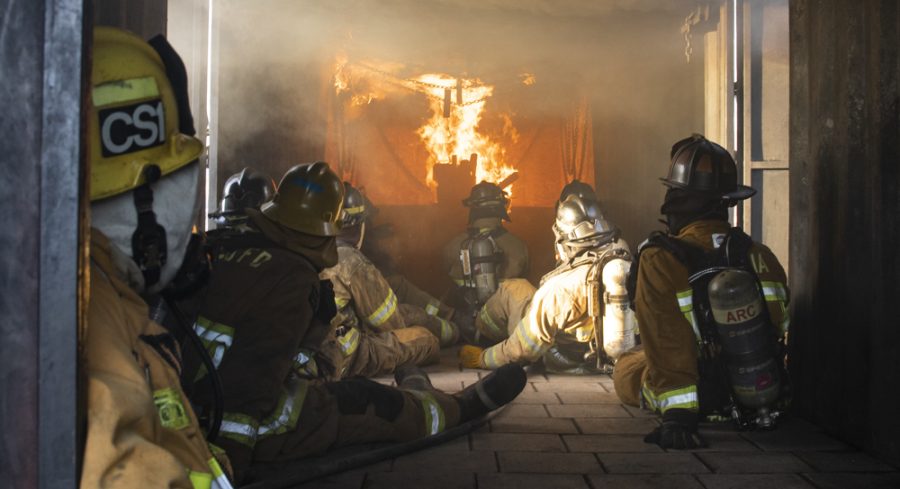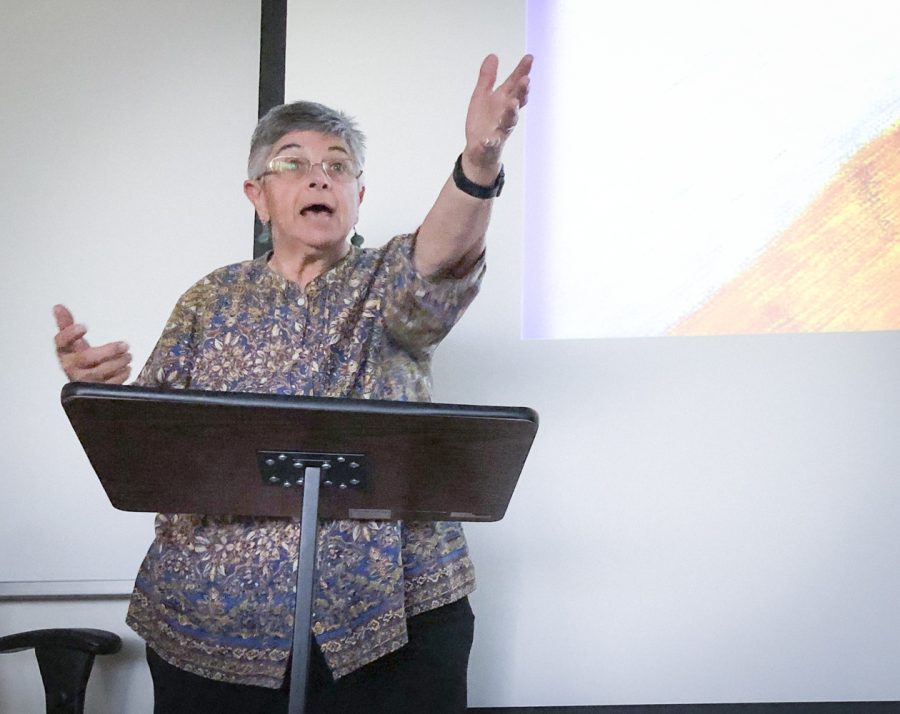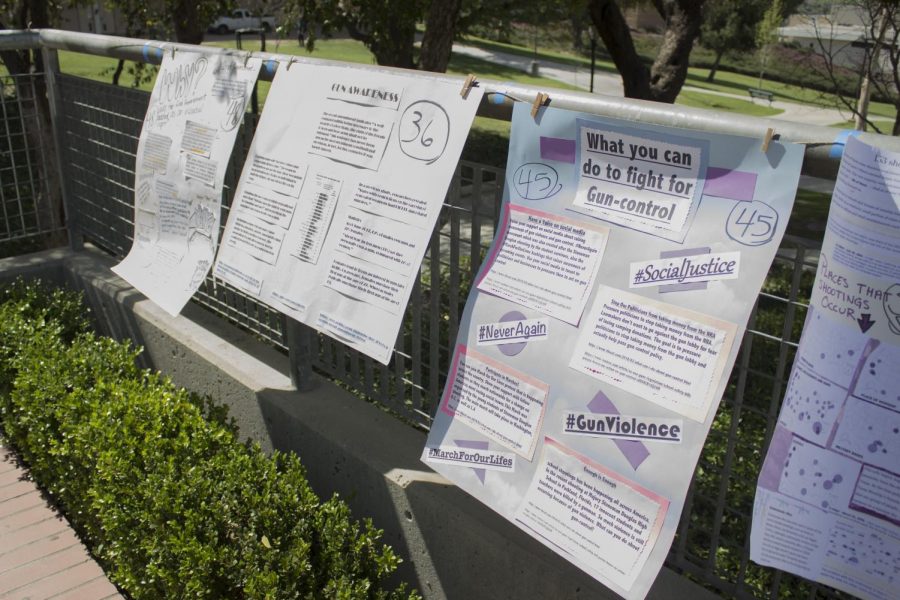Although the man is frail, tucked into his wheelchair like a precious bundle, he has a silent strength and determination about him as well as a message that needs to be heard around the world.
Leopold Engleitner and his biographer Bernhard Rammerstorfer held an event at the Moorpark College Performing Arts Center as a stop on their “Unbroken Will 2009” tour as well as to celebrate the end of the Year of Democracy.
“You either sign the declaration or leave through the chimney,” Engleitner was told by an Nazi guard. “I said ‘I will not sign and I will not leave through the chimney. I will go home.”
Engleitner, a 103 year-old Jehovah’s Witness, is the oldest known living Holocaust survivor. When he was a young boy, he was studying the American Civil War as the most recent was in history; he read about the Titanic sinking in the paper; he met Emperor Franz Josef before the start of World War I.
When Engleitner first head the word “Hitler”, he thought the coming of the Germans was a good thing.
“It is a movement like the Boy Scouts and they will build cabins in the forest,” Engleitner’s interpreter Robert Wagemann explained.
By mistake, Engleitner heard the German word “hutte” instead of “Hitler” because of his bad hearing. However, the Jehovah’s Witness would later experience first hand what “Hitler” really stood for.
Engleitner, who was born in 1905 in Austria, converted to Jehovah’s Witness in 1932 when fascism was overtaking his country. Between 1934 and 1938, Engleitner was imprisoned four times because he was preaching his religion, which became a criminal offense when the sect was not approved of by the state.
The Jehovah’s Witnesses in Austria heard of the uprisings in Germany and decided to keep their religious activities secret, however on April 4, 1939, Engleitner and other Witnesses were arrested during a religious celebration.
The charges were dropped, but the Gestapo, who had enough problems within the jurisdiction, invented “protective custody” to keep the Witnesses in prison. Protective custody let the Gestapo take anyone not sentenced in court to a concentration camp. Engleitner was sent to Buchenwald Concentration Camp on October 5, 1939.
After two years of humiliation and torture in Buchenwald and another two years at Niederhagen Concentration Camp, Engleitner had the opportunity to sign a declaration renouncing his religion, allowing him to leave the concentration camp and work as a farm hand.
Engleitner refused.
He was then transferred to the overcrowded Ravensbruck Concentration Camp in April of 1943. Two months later, Engleitner took the opportunity to leave the concentration camp to go into forced labor because renouncing his religion was not one of the stipulations of the contract.
Engleitner left the Ravensbruck Concentration Camp on July 15, 1943.
He was only 61.1 pounds when he returned home.
Engleitner’s homecoming was short-lived, however when he was drafted for Hitler’s military. Engleitner refused to join and had to flee to escape the war. He hid in the Austrian Alps, dodging the Nazi fanatics looking for him until the end of World War II.
There were other Holocaust survivors that attended the event and volunteered to tell their stories.
Wagemann explained that he was targeted twice over by the Nazis because he was a Jehovah’s Witness and because his right leg was six inches shorter than his left at birth, he was classified as handicapped under the T4 Program. However, it was his family and his faith that pulled him through those trying times.
“Your parents make sure you have a strong faith to get you through situations like that,” explained Wagemann.
Renee Firestone also spoke of her survival of the Auschwitz-Birkenau extermination camp. She explained the time when she was in front of the four incinerators with the chimneys spewing smoke and asking a female Nazi guard when she and her sister would be reunited with her parents.
“She said ‘there go your parents and when you go through the chimney, you’ll be with your parents,'” Firestone reiterated. “Of course, I had no idea what she was talking about.”
At Auschwitz-Birkenau, Firestone was separated from her sister and when she revealed to the audience that she was used for medical experiments, a hush fell over the crowd. She later had the opportunity to confront one of her sister’s “doctors” during the filming of the Steven Spielberg movie “The Last Days.”
“The horror stories from the camps are much worse than the human mind can observe,” Firestone said.
Marcella Gatlin, 27, was emotionally touched bt the presentations.
“I thought it was amazing listening to their stories,” said Gatlin, a Biological Sciences major. “Witnessing that kind of depravity must be difficult to get through, but to see someone speak about it with a smile on their face after is amazing to me.”
It is amazing how a chance meeting between and old man and a young man on a park bench in Bad Ischl, Austria lead to this once in a lifetime event.
“I asked him a great many questions. And he talked and he talked and he talked,” explained Rammerstorfer. “Not once has he shown anger or hate. He is one of the most content people I have ever met.”
Everyone who took the stage was amazed by Engleitner’s spirit and energy.
Beatrice Gutai, who helped produce the event along with her husband Digital Film Professor Ferenc Gutai, mediated the event and summed up the crowd’s feelings for Engleitner perfectly.
“Almost 104 and still full of energy. He still puts some of us to shame, I think,” said Gutai.
When asked what kept him in such high spirits and good health, Engleitner explained.
“I am a happy boy. I enjoy everything and I have no time to die. I’ll be back.”
Engleitner and Rammerstorfer continue their “Unbroken Will 2009” tour with another sold-out engagement at Moorpark College May, 23 at 6:30 p.m., a sold-out event at the Los Angeles Museum of the Holocaust on May 24 at 7:30 p.m. and a book and D.V.D. signing at the Ronald Reagan Library on May 26 at 10:30 a.m.





